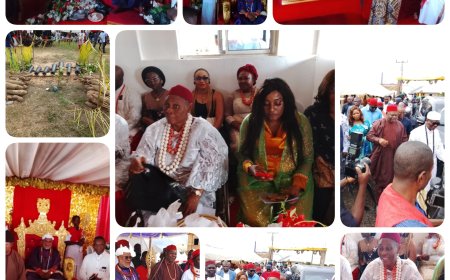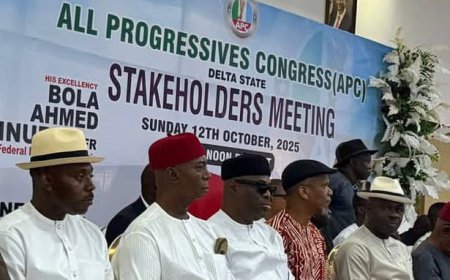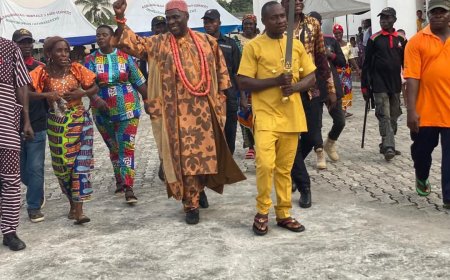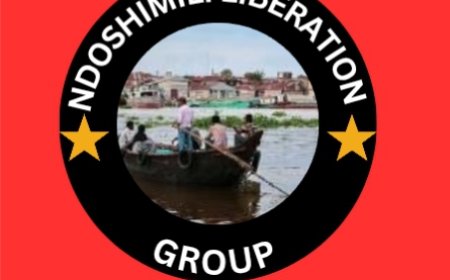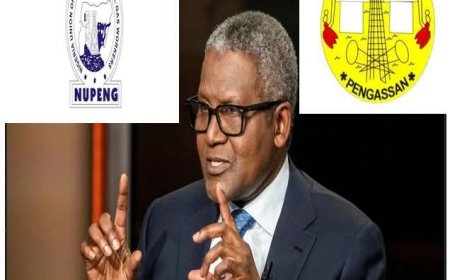THE ROLE OF THE HR PROJECT MANAGER IN ORGANIZATIONAL CHANGE AND TRANSFORMATION
By Innocent Onyah,PhD. 2nd October 2025

INTRODUCTION
Organizational change and transformation have become integral to sustaining competitiveness in the 21st-century business environment. Globalization, technological advancements, workforce diversity, and economic uncertainties demand that organizations continuously evolve. However, research shows that up to 70% of change initiatives fail due to poor planning, lack of leadership commitment, and inadequate employee engagement (Kotter, 1996). In this context, the HR Project Manager plays a critical role in bridging strategic objectives with human capital management to ensure successful transformation.
THEORETICAL PERSPECTIVES ON CHANGE MANAGEMENT
Organizational change theories provide a framework for understanding the HR Project Manager’s role:
Lewin’s Change Model (1947): This three-step model (Unfreeze, Change, Refreeze) highlights the importance of preparing employees for change, implementing new practices, and stabilizing them. HR Project Managers operationalize this by developing communication strategies, training programs, and reinforcement mechanisms (Burnes, 2004).
Kotter’s 8-Step Change Model (1996): Kotter emphasizes creating urgency, forming guiding coalitions, and embedding changes into organizational culture. HR Project Managers serve as facilitators in building coalitions, driving communication, and ensuring employee buy-in (Kotter, 1996).
ADKAR Model (Hiatt, 2006): This model (Awareness, Desire, Knowledge, Ability, Reinforcement) provides a people-focused approach to managing change. HR Project Managers design initiatives that guide employees through each stage, ensuring sustainable behavioral shifts (Hiatt, 2006).
Herzberg’s Motivation-Hygiene Theory (1959): Motivation and satisfaction are key to performance. HR Project Managers leverage this theory to foster engagement through supportive programs and wellness initiatives during transformation (Herzberg, Mausner, & Snyderman, 1959).
Ulrich’s HR Business Partner Model (1997): Ulrich emphasized that HR should act as a strategic partner in driving organizational performance. HR Project Managers embody this principle by aligning people strategy with transformation objectives (Ulrich, 1997).
KEY ROLES OF THE HR PROJECT MANAGER IN TRANSFORMATION
STRATEGIC ALIGNMENT
HR Project Managers align transformation initiatives with organizational goals by ensuring HR strategies (talent development, workforce planning, diversity and inclusion) complement business objectives. This reinforces the idea that human capital is central to transformation (Ulrich, 1997).
CHANGE LEADERSHIP AND COMMUNICATION
Effective change management requires communication that is transparent, consistent, and empathetic. HR Project Managers act as change leaders, developing communication roadmaps that clarify the purpose, benefits, and impacts of transformation. This reduces resistance and builds trust across the workforce (Kotter, 1996).
TECHNOLOGY INTEGRATION AND DIGITAL HR
Digital transformation demands new HR technologies such as Human Resource Information Systems (HRIS), AI-driven analytics, and cloud-based performance management tools. HR Project Managers manage these implementations through project planning, vendor management, system testing, and employee training, ensuring smooth adoption (Hiatt, 2006).
EMPLOYEE EXPERIENCE AND ENGAGEMENT
Herzberg’s Two-Factor Theory highlights the importance of motivation and job satisfaction. During organizational change, HR Project Managers implement engagement strategies, wellness initiatives, and feedback systems that minimize uncertainty and stress, leading to higher morale (Herzberg et al., 1959).
RISK AND COMPLIANCE OVERSIGHT
Transformations often involve restructuring, layoffs, or mergers, which carry legal and ethical risks. HR Project Managers ensure compliance with labor laws, data protection policies, and organizational ethics while mitigating workforce-related risks (Burnes, 2004).
TALENT DEVELOPMENT AND UPSKILLING
Transformation is unsustainable without investment in human capital. HR Project Managers assess skill gaps and design learning and development programs, ensuring the workforce is prepared for new roles, technologies, and market demands (Ulrich, 1997).
IMPACT ON ORGANIZATIONAL SUCCESS
The contribution of HR Project Managers is evident in how they:
Translate strategic change initiatives into actionable HR processes.
Build resilience by embedding adaptability into organizational culture.
Enhance employee readiness and reduce resistance to change.
Improve the success rate of transformation initiatives by ensuring people are central to the process.
CONCLUSION
The HR Project Manager is a catalyst of organizational transformation, ensuring that change initiatives are strategically aligned, effectively communicated, and human-centered. By applying change management theories such as Lewin’s Model, Kotter’s 8 Steps, ADKAR, Herzberg’s Two-Factor Theory, and Ulrich’s HR Business Partner Model, they bridge the gap between leadership vision and workforce execution. In a volatile business environment, organizations that leverage HR Project Managers as change champions stand a greater chance of achieving sustainable transformation and long-term success.
References
Burnes, B. (2004). Kurt Lewin and the planned approach to change: A re‐appraisal. Journal of Management Studies, 41(6), 977–1002.
Herzberg, F., Mausner, B., & Snyderman, B. B. (1959). The Motivation to Work (2nd ed.). New York: John Wiley & Sons.
Hiatt, J. M. (2006). ADKAR: A Model for Change in Business, Government, and Our Community. Prosci Research.
Kotter, J. P. (1996). Leading Change. Boston: Harvard Business School Press.
Lewin, K. (1947). Frontiers in group dynamics: Concept, method and reality in social science; social equilibria and social change. Human Relations, 1(1), 5–41.
Ulrich, D. (1997). Human Resource Champions: The Next Agenda for Adding Value and Delivering Results. Boston: Harvard Business School Press.
About the Author:
Dr. Innocent Onyah is a Chartered Banker and Human Resource Management Specialist with over 20 years of experience in banking, operations, and digital transformation. He holds a Ph.D. in Human Resource Management and professional certifications including Project Management Professional (PMP) and Professional in Human Resources – International (PHRi). His expertise spans organizational change, project leadership, and talent development.
What's Your Reaction?







